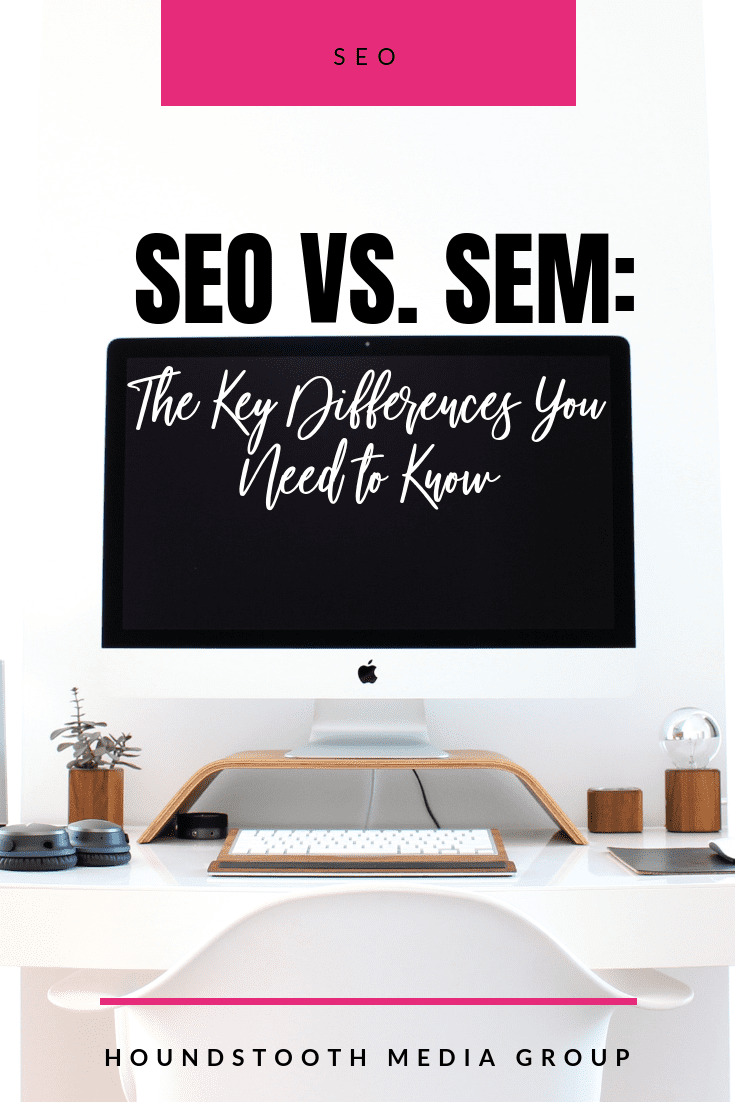The internet is a very busy place, with lots of information, businesses, and websites all fighting for consumers’ attention. A big part of getting noticed is to understand search optimization. This is the process of making your content appear in search results listings. There are two strategies to improve search optimization and to drive traffic to your site so we are tackling SEO vs SEM.

SEO stands for search engine optimization. It is an organic strategy. SEM is an acronym for search engine marketing. It utilizes paid strategies to appear in search results. This is the core difference between SEO and SEM, but there are a few details to be aware of us. Let’s take a closer look at the key differences between the two.
SEO vs. SEM: How are they similar?
There are many key similarities between SEO and SEM. These are the main ways they are alike:
- For starters, both help your brand appear in search results.
- Both search optimization strategies will drive web traffic to your site.
- SEO and SEM both require knowing your audience and using strategies to target your intended audience.
- Keyword research is crucial with both SEO and SEM to be successful.
- Continual testing, monitoring, and optimization are ongoing with both to increase performance.
What is are the Differences Between the Two?

While SEO and SEM may seem to be almost identical, there are several very important differences to note. Here are the key differences when discussing SEO vs. SEM:
- SEM search placements will have an “AD” designation next to the search result, and SEO placements will not.
- The appearance in search results is different. SEM results will show ad extensions, such as phone numbers and links. SEO results will have featured snippets.
- Known as “pay per click”, you will pay when a user clicks on the SEM search result. There is no fee when a user clicks on the SEO search result.
- SEM will target a specific audience, as established by filters you can assign when purchasing the ad. You cannot specifically target an audience with SEO.
- Results are immediate with SEM. When you launch a campaign you can start monitoring reach and clicks right away. SEO is organic and takes time to develop.
- SEO adds value over time, as the results will stay in search results long after a paid advertisement has ceased to run. SEM search placements will only stay listed for as long as you continue to pay for them.
- If you can get to the top of page one, SEO has a higher click-through rate. If you are not ranking on the first page, however, SEM will get more clicks.
Now that you understand the key differences, you can debate using SEO vs SEM to boost your business. Want our help with your SEO marketing? Contact us with your needs.